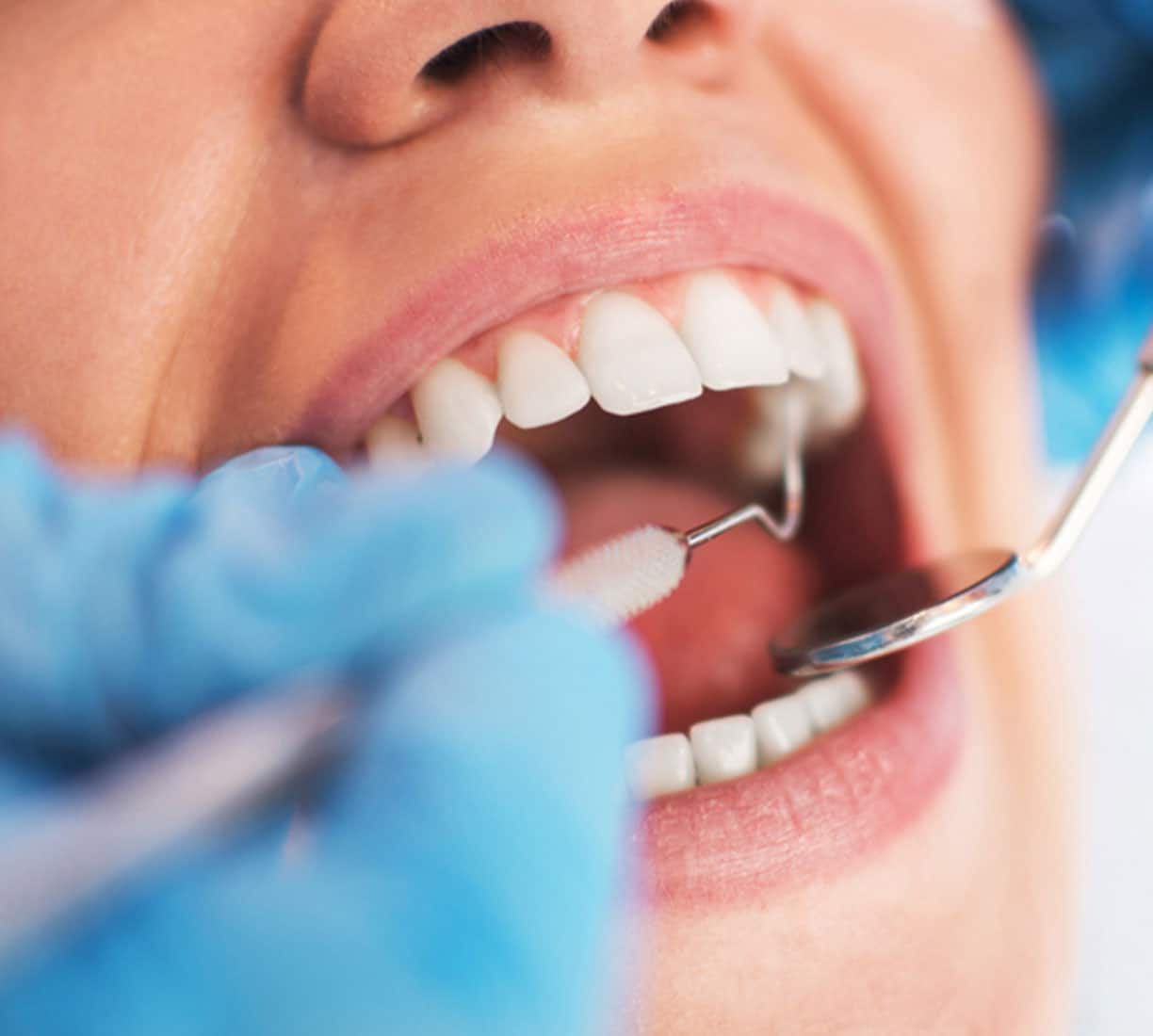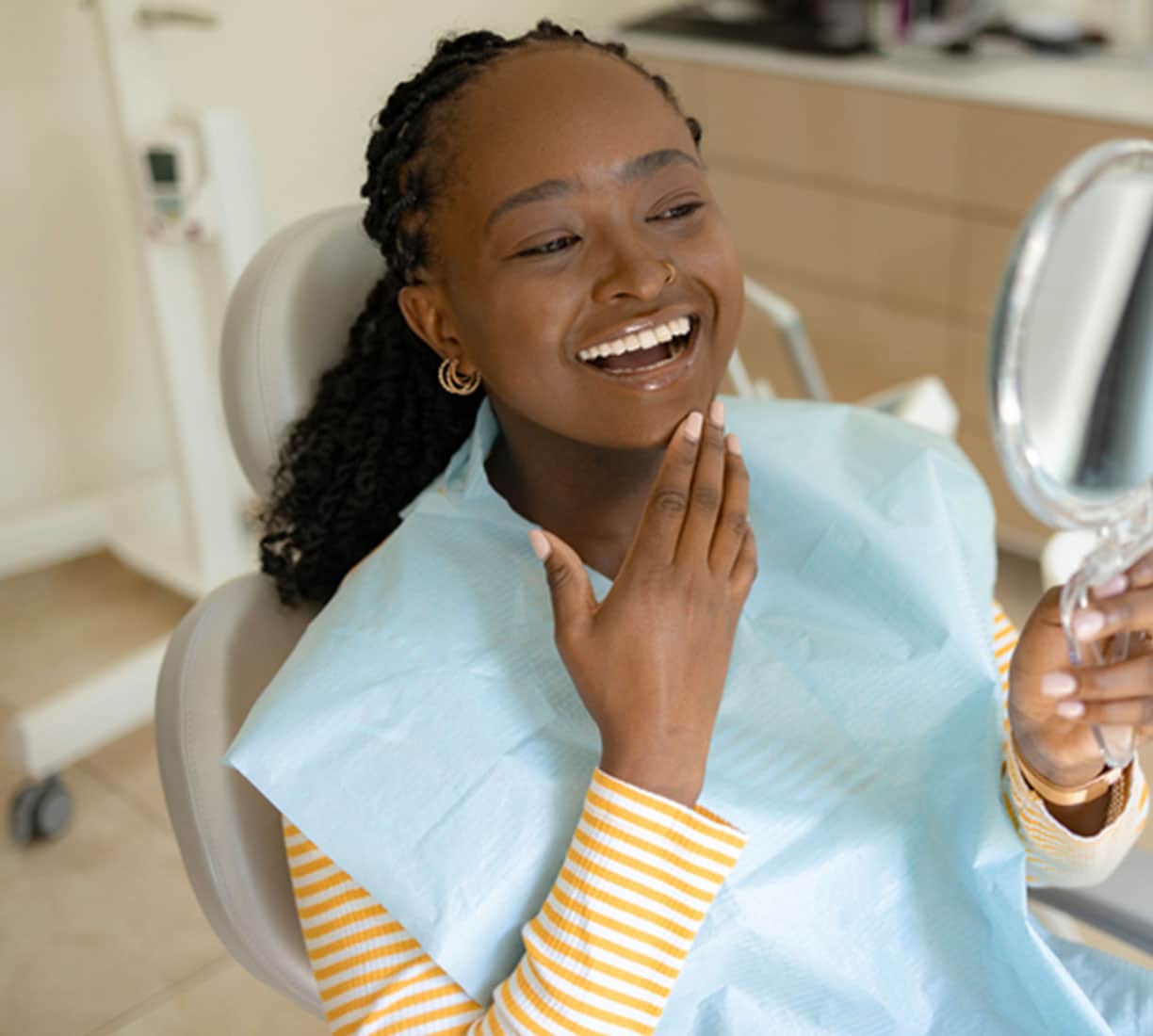Oral Cancer Screening in Southfield, MI
Few health concerns are as distressing as a cancer diagnosis, and it comes in many painful and unpredictable forms. Oral cancer isn’t limited to age or genetic predisposition—it can be brought on by environmental or lifestyle factors as well. If you’re concerned that you may be at risk, it’s time to speak with a dental professional.
At Michigan Gum Docs, we provide oral cancer screenings to help our patients improve their chances of catching these problems in time to treat them. With the steadily rising number of cases of mouth and throat cancers in the recent past, it’s more important than ever to have regular oral cancer screenings. Keep reading to learn more.

When Do I Need an Oral Cancer Screening?
Experts recommend that adults between the ages of 20 and 40 should be screened for oral cancer at least every 3 years, if not more frequently, depending on personal risk factors and family history. Adults over the age of 40 are encouraged to get annual screenings.
Like most cancers, the treatment of oral cancer is more effective the earlier the disease is caught. Planning professional oral cancer screenings as a regular part of your personal healthcare routine will provide you with peace of mind and the opportunity for better outcomes with early diagnosis.
Causes of Oral Cancer
There are many potential causes of oral cancer, and not all causes are known, which is why it is important for adults to have regular screenings. Some of the known causes of oral cancer include:
- Excessive sun exposure to your lips
- Consistent tobacco use
- Heavy alcohol use
- Genetic predisposition
- HPV, a sexually transmitted infection

What to Expect During an Oral Cancer Screening
During an oral cancer screening, your dentist will likely use common tools like a flashlight, a tongue depressor, and a mirror to assess the interior tissues of your mouth and throat, including your gums, tongue, and esophagus. Your dentist may also palpate the exterior of your throat to examine it for lumps. You can also expect a discussion of ways to reduce any personal risk factors you may be facing.
If any abnormalities are detected during the screening, your dentist might recommend a biopsy sample be sent to a lab for review or a follow-up appointment to see if the condition persists. These techniques may simply identify noncancerous sores, but they’re important for catching any cancerous cells that might be lurking in your tissues. When it comes to cancer, it’s much better to be safe than sorry.
Oral Cancer Screening FAQs
Trained professionals understand how to differentiate between healthy tissues in the mouth and areas of concern. Scheduling a regular dental appointment and requesting an oral cancer screening can help you stay ahead of these concerns.
However, you and your dentist can both keep an eye out for visual identifiers such as bumps, swelling, irregular tissue coloration, patches of discoloration, and ulcer development. These problems may very well be early indicators of oral cancer development.
Yes! An oral cancer screening can usually be performed during your annual or semi-annual dental checkup as part of your comprehensive care. At Michigan Gum Docs, our dental team is professionally trained to spot these issues and identify potential abnormalities or concerns that need special attention.
An annual oral screening is usually sufficient to identify any signs of oral cancer. In fact, adults under 40 may only need a screening every 3 years.
Personal risk factors may make it necessary to arrange for more frequent screenings. However, precautions such as applying SPF lip balm, avoiding tobacco products, and being vaccinated against HPV can reduce the risk of developing oral cancer.
Take Action and Book Your Screening
Be proactive in your oral health care—contact Michigan Gum Docs today to arrange your oral cancer screening. It’s never too early to stay ahead of potential health problems.
